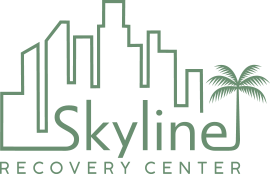The journey to recovery is not just a personal battle, but a societal necessity. This highlights the critical need for effective treatment programs.
The program offers a treatment model that includes various modalities, including:
We empower clients to achieve recovery and improve their quality of life. By joining the program, participants find support for a fulfilling and sober future. It enables participants to receive care without stepping away from their daily commitments.
We’re here to empower individuals and their families with the tools necessary with a happier, healthier tomorrow. Here, the sky’s the limit.
Here’s a closer look at how these programs function and what they aim to achieve:
The primary objective of outpatient alcohol treatment is to help people achieve abstinence or significantly reduce their alcohol consumption.
These programs utilize various strategies to address:
Outpatient treatment programs can help people identify these underlying issues. The goal is to develop healthy coping mechanisms so that they can be managed effectively. This comprehensive approach addresses the root causes of addiction and promotes long-term recovery.
Outpatient alcohol treatment equips participants with essential life skills to navigate challenges. These skills may include:
Alcohol dependence can have a detrimental impact on physical and mental health. Outpatient alcohol treatment often incorporates education on healthy living habits, including:
By promoting general well-being, clients are better equipped to manage cravings and resist relapse.
One of the significant advantages of outpatient alcohol treatment is its flexibility. Unlike inpatient programs, outpatient programs allow clients to continue:
Those with childcare responsibilities or who cannot afford a leave of absence can benefit from this flexibility. In this way, outpatient programs empower people to take an active role in their recovery while maintaining a sense of normalcy and routine.
Outpatient treatment allows participants to directly apply coping strategies to their lives. The ongoing practice tests and strengthens their ability to manage triggers and stressors. This can be more effective for long-term recovery.
By staying at home, people can remain close to their loved ones, who can play an active role in their recovery.
Many outpatient programs also offer family counseling sessions to:
Outpatient alcohol treatment programs provide a comprehensive approach to healing. They do so by integrating various services to address the multifaceted aspects of AUD.
Therapy sessions are a cornerstone of outpatient alcohol treatment. Therapists utilize evidence-based approaches to help clients develop:
When appropriate, medication-assisted treatment (MAT) can be integrated into an outpatient alcohol treatment program. Medications can help reduce cravings and manage withdrawal symptoms.
Some of the most common medications used for AUD include:
Outpatient programs may offer additional support services to promote long-term wellness. This may include services such as:
These services address various aspects of a person’s life. They foster overall well-being and support long-term recovery.
At Skyline Recovery Center, compassionate care lies at the heart of our approach to alcohol recovery. Our focus is on creating an environment that fosters healing, resilience, and personal growth.
We believe in empowering our clients through understanding and empathy. Our staff listens attentively and acts as steadfast allies throughout the recovery process.
Here’s how SRC sets itself apart by offering compassionate care tailored to individual needs:
At SRC, we recognize that each person’s experience with AUD is unique. Our program begins with a comprehensive assessment that goes beyond diagnosis.
This evaluation explores a person’s:
Based on this assessment, we develop a personalized treatment plan. This plan incorporates:
Evidence-based interventions are at the core of SRC’s AUD treatment program. Here are some of the core therapeutic approaches we utilize:
CBT works by helping people recognize and change negative thought patterns and behaviors. It encourages participants to challenge distorted cognitions and develop healthier responses to stress and triggers.
By equipping clients with these skills, CBT empowers them to manage their impulses and make lasting changes towards sobriety.
MI is a client-centered approach that fosters intrinsic motivation for change. Therapists utilize motivational interviewing techniques to:
Narrative therapy offers a unique approach to healing from AUD. It focuses on the stories clients tell themselves about their lives and their relationship with alcohol.
Through this process, people can:
At SRC, we know relapse is a common occurrence in recovery. Our approach centers on equipping people with the tools they need to navigate challenges and maintain sobriety.
We implement strategies that help identify and manage high-risk situations. This includes teaching coping mechanisms for stress and triggers, which are often precursors to relapse.
Our outpatient alcohol treatment encourages healthy routines that include:
These lifestyle practices support physical and mental health and reduce the likelihood of relapse.
Additionally, we encourage building strong support networks. Connection with peers, family, and support groups provides essential social reinforcement for staying sober.
Recovery extends beyond simply stopping alcohol use. At Skyline Recovery Center, we recognize the importance of overall well-being in achieving lasting change.
Our outpatient alcohol treatment incorporates various holistic healing practices, including:
We develop integrated treatment plans that address both AUD and co-occurring mental health conditions. In doing so, we ensure a comprehensive approach to healing and promote long-term recovery.
Alcohol use disorder is a treatable condition, yet millions struggle to access the support they need. At SRC, we advocate for a multi-pronged approach to make outpatient alcohol treatment accessible to all.
Misconceptions about AUD being a character flaw or a lack of willpower persist. Here’s how we aim to break down these barriers:
Public awareness campaigns can play a crucial role in destigmatizing AUD and treatment. These campaigns can:
Encouraging open conversations about AUD can dismantle stigma at the community level. People in recovery can share their stories. On the other hand, healthcare experts can educate the public about the condition and available resources.
The language people use to talk about AUD matters. Avoiding terms like “alcoholic” and instead using person-first language like “people with AUD” fosters respect and reduces stigma.
Many individuals and families remain unaware of outpatient alcohol treatment programs and how they can help individuals achieve long-term wellness and sobriety.
By partnering with other local rehabilitation networks and advocating for change in our community, we’re here to change the perspective surrounding treatment — one individual at a time.
Skyline Recovery Center offers a dynamic and flexible approach to outpatient alcohol treatment. We combine proven therapies with holistic wellness practices. Our specialized support for dual diagnoses ensures comprehensive care for people facing multiple challenges.
SRC’s program focuses on addressing the root causes of addiction. We do so by identifying and treating underlying mental health issues. Our emphasis on holistic healing, including wellness activities and mindfulness practices, promotes well-being and long-term sobriety.
The journey to recovery from alcohol use disorder is challenging but achievable with the right support and treatment. If you or someone you know is battling alcohol use disorder, Skyline Recovery Center is here to help.





